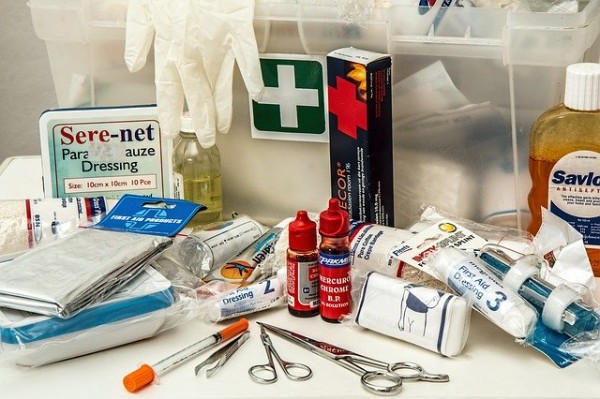By Telegiz , | March 26, 2020
- PREV
- Image1of0
- NEXT

Image by Steve Buissinne from Pixabay
Like Us on Facebook
With the rising number of coronavirus patients but the dwindling protective gears of medical staff, hospitals and doctors are debating whether they should order a do-not-resuscitate policy for COVID-19 patients--a harrowing choice to help save healthcare frontliners against the virus.
Doctors are Given a Hard Choice
According to the Washington Post, the Northwestern Memorial Hospital located in Chicago is already discussing that doctors and medical staff may stop resuscitating coronavirus patients when their hearts and breathing stop, regardless of the family's wishes.
This is after realizing the shortage of personal protective equipment (PPE), including face masks, gowns, and gloves, medical staff is more at risk of catching the virus.
During resuscitation, medical staff at the frontlines are in close contact with the patient, so the risk of getting infected is higher.
Based on a report by the Daily Mail, one of Northwestern's intensive-care medical directors, Richard Wunderink, said that the hospital administrators would be talking to Illinois governor J.B. Pritzker to clarify whether the law permits such change in hospital policies.
Wunderink believes that it's a significant concern for everyone, and added: "This is something about which we have had lots of communication with families, and I think they are very aware of the grave circumstances."
More Hospitals Consider a Do-Not-Resuscitate Order
Besides Northwestern Memorial Hospital, doctors at the George Washington University Hospital are also considering the do-not-resuscitate orders.
However, they will continue to resuscitate coronavirus victims for now but will prepare special measures such as creating a barrier and putting a plastic sheet over the victim before they follow with the CPR.
Meanwhile, healthcare staff at the University of Washington Medical Center located in Seattle is handling the situation by limiting the responders of a cardiac or respiratory arrest patient if they are positive for COVID-19.
Several other larger hospital systems, including the regional Kaiser Permanente networks and the Atrium Health in the Carolinas, are also looking at guidelines that could potentially allow doctors to override the wishes of a coronavirus patient's family on a case-to-case basis.
Again, this is due to the shortage of protective gear.
However, they would stop short of enforcing a do-not-resuscitate policy on all coronavirus patients.
Tough but Logical
Bioethicist Alta Charo of the University of Wisconsin - Madison believes that the choice is a logical one, saying that it will not help us if doctors and nurses get infected by the virus and would be unable to help us.
Likewise, a bioethicist from the University of Pennsylvania, Scott Halpern, said that if healthcare staff risk their life for one patient, they detract themselves from caring for future patients, which is "unfair."
Healthcare Workers are Exhausted
Around the world, thousands of healthcare workers are already isolating themselves at home after being in contact with a patient and showing symptoms.
Healthcare staff has also died, including one Italian nurse who committed suicide after testing positive of COVID-19 in fear that she would infect other people, as per the New York Post.
Additionally, medical frontliners are getting more mentally and physically exhausted, according to Time, with the ongoing battle against the coronavirus pandemic, especially when they have to go to work knowing they are risking their lives.
-
Use of Coronavirus Pandemic Drones Raises Privacy Concerns: Drones Spread Fear, Local Officials Say

-
Coronavirus Hampers The Delivery Of Lockheed Martin F-35 Stealth Fighters For 2020

-
Instagram Speeds Up Plans to Add Account Memorialization Feature Due to COVID-19 Deaths

-
NASA: Perseverance Plans to Bring 'Mars Rock' to Earth in 2031

-
600 Dead And 3,000 In The Hospital as Iranians Believed Drinking High-Concentrations of Alcohol Can Cure The Coronavirus

-
600 Dead And 3,000 In The Hospital as Iranians Believed Drinking High-Concentrations of Alcohol Can Cure The Coronavirus

-
COVID-19: Doctors, Nurses Use Virtual Reality to Learn New Skills in Treating Coronavirus Patients







